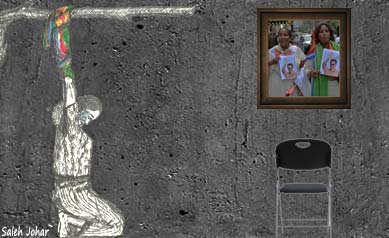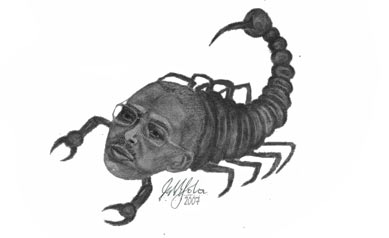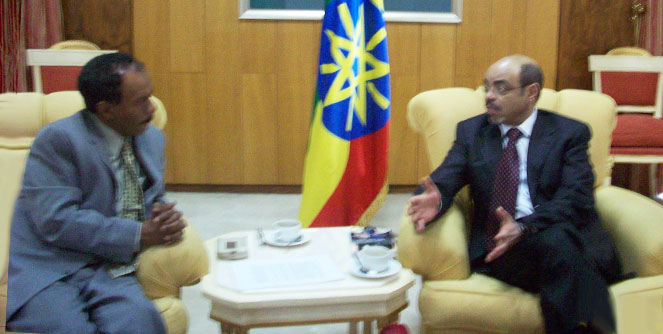NEW: Network of Eritrean Women Into The Second Year

After so many years of struggle, Eritrea is still a crude patriarchal society. Little has improved on the rights of citizens; the status women is even worse. Considering the enormity of the Eritrean struggle for freedom, the achievements on gender issues are marginal.
Women started to join the struggle starting in the late 1960s and slowly gained visibility at all levels. They participated in many activities; there were even involved in security operations inside enemy-held territories and gradually became military commanders–an achievement that should not be taken lightly. However, once Eritrea was liberated, citizens found themselves under the brutal grip of a tyranny that doesn’t believe they have rights. In short, the Ethiopian Derg occupation was replaced by an Eritrean one. The struggle continued; this time for the rights of the citizens. Unfortunately, though a few women refused to give up and kept the torch of the struggle alive, the post-independence struggle remained the affairs of men.
In the spring of 2013, a few Eritrean women formed the “Network Of Eritrean Women (NEW).” And, on March 20-22, 2015, NEW met to celebrate its first year anniversary in Frankfurt, Germany.
awate.com has lost interest in the numerous groups that pop up all over the world only to disappear or fragment in a short period of time or, if they stay alive, they get bogged down in countless meetings that are neither exciting nor inspiring. However, we thought NEW might have a chance of surviving provided it focuses on achieving tangible goals and avoid bureaucratic meetings that produce nothing. A women’s movement is badly needed considering the dozens of groups whose membership and leadership are overwhelmingly composed of men. In the interest of full disclosure to our readers, we need to share the following: almost three quarters of NEW’s founders are friends of awate.com.
To shed light on NEW, awate.com conducted a brief interview with Mrs. Khedija Mohammed-Nur, and Dr. Sara Uqbay via telephone and Skype. Here follows the interview.
awate.com: What are the objectives of NEW?
Khedija: Firstly, it is a free movement with an objective to build a network that facilitates cooperation between women, and enable them to fight for their rights by creating a large network that covers all parts of the world. A network to struggle in all aspects–political, social– to enhance the participation of women so that they can play leading roles.
awate.com: All right. But whenever people form an association, there is a boilerplate explanation that they provide, such as, to struggle for rights, etc, etc. The question is a bit specific. For example you are in the UK, and there are women’s associations there. There is enough infrastructure that protects women’s rights, and others rights, including human rights. Now, if there are associations that advance women’s rights in the UK, for example, why can’t you use the existing infrastructures? Why do you need a separate Eritrean association?
Dr. Sara: First we need to bring women on board to advocate for their rights in an organized manner. The other exceptional thing is that, in our initiative, we want to connect all women in all countries . They can form new associations, or they might already have associations. Our network encourages coordination so that we can pursue coordinated common goals, we all have the same goals. Membership is open to all regardless of their background–political or otherwise–because when change comes to Eritrea, they will be empowered to advocate and struggle for their rights in unison. We would like to provide a genuine open platform for the next generation.
awate.com: Is NEW in the national struggle, in the political sense, or it only focuses on women’s issues? If it’s specifically struggling for women’s rights, there are other associations where you live. So, what added value are you providing, anything new? But If it focuses on general Eritrean issues, there could be a follow up question.
Khedija: I can say it’s both. As Eritreans, since we have a special case, political and social, this is where we can be organized as Eritreans to wage an effective struggle. Secondly, we have ties with other associations, different association, and we carry out joint activities with other associations. So, as far as NEW members are concerned, there are immediate and future goals.
awate.com: In that case you are focused on both, general Eritrean issues and specific women’s’ issues. So, what is the ratio, if we tried to divide your goals into national and women-specific. Can we say, for instance, a ratio of, 20-80, 30-70 or 50-50?
Dr. Sara: I consider it 50-50 because Eritreanism comes with everything we do. Women have a special case because it is (and was) affected by the situation in the past and the present. It is affected by the current situation in our country. NEW is involved in the general situation of Eritrea as well as on specific women’s issue.
awate.com: All right, then there is a women’s association under the PFDJ which claims to struggle for the interest of women. Now, if we separate and leave aside the general political and national issue and focus on specific women’s issues, what makes you different from NUEW [the ruling party affiliated National Union of Eritrean Women] in Eritrea? In that aspect, don’t you both have almost the same goals and the same activities? Where is the distinction between NEW and NUEW?
Khedija: Firstly, NEW is not exclusive and doesn’t discriminate based on political affiliation and other tendencies, regardless of the social standing of women. That is one of the main differences. NUEW is an affiliate of the regime and it is not an independent organization but follows the party directives. Even if both seem similar in their declared goals, in reality, and in the application of the goals, they are very different. NEW doesn’t struggle in support of a specific side, political or otherwise, but for an all-inclusive Eritrean women’s interest.
awate.com: Dr. Sara said, the ratio is 50% national and 50% women’s. If we applied the same assumption regarding NUEW, how much of its activities are being an appendage of the regime and what percentage of NUEW activities do you think advances women’s interests?
Dr. Sara: Well, I have been there and I wouldn’t give NUEW 10% for their struggle for women’s rights. I know it firsthand though I was not a member–they focus on collecting membership dues and not on women’s issues or complaints. They serve a woman if she is loyal to the regime and if they thought she is not loyal, the woman doesn’t get any service or protection. Before they think of helping, NUEW first checks the concerned woman’s affiliation, her role on the struggle era–veteran combatants are given preferences, though this shouldn’t be understood that they serve the interest of the veteran combatants any better. Political affiliation matters more to NUEW than gender issues does.
awate.com: Recently, you held a first year anniversary meeting. What can you present as an accomplishment since you were established a year ago?
Khedija: The network was first established on facebook, and then we held our first face-to-face meeting in Stockholm, Sweden. And NEW is active in the struggle for change that is going on. Of course we stress that women’s issues are part of the general human rights issues. We have been playing our role in many activities but mainly on building our capacities, expressing our positions, in social media, Paltalk and other meeting. Also, our sister associations have been strengthening their bonds with local associations, and at the same time increasing the level of cooperation and effectiveness of NEW. Building capacity is very important and we have been working on that. We have also established relations with local and international associations. For example, in the UK, our chapter is fully established, and Sweden is in the process of doing that although they have been carrying out many other activities. The same with other places. Importantly, we have developed trust among each other.
awate.com: Since you met last year in Sweden–of course most if not all the founders attended the meeting in Frankfurt–any increase in membership?
Khedija: We have improved, and we have built enough trust. That was our main goal for the past year which we put as a priority last year in Sweden. As you know we are influenced by the general political atmosphere. Now the mistrust and suspicion among NEW members is eliminated. That is why we were focused on improving our network before we move to expanding membership and other activities.
Dr. Sara: In Frankfurt, other women’s associations attended the meeting and we established many contacts. The sisterly association expressed their solidarity with NEW and we formed a coordinating committee to discuss and research avenues of cooperation between NEW and these associations.
Khedija: …. as you know, we as women belong to different political organizations, but for us to perform properly, NEW should remain non-partisan–that is also one of the task of the committee that was formed. It will look into the issue…
Awate.com: Let’s focus on the general “Eritrean” part of NEW’s goals. As you know, many associations like NEW are formed in the Diaspora, but slowly the issue of Eritrea is forgotten and they become territorial and provincial, strictly “emigre politics”. What would prevent you from forgetting Eritrea and be immersed in your local Diaspora problems and politics? Many times, we observe associations stress on their “Eritrean” identity but then it takes secondary position to their local lives, maybe it even takes tangential position–if not forgotten altogether, but in name. Any precaution you have taken to avoid that kind of predicament? Would you forget Eritrea and be narrow and territorial? And what’s your relations with Eritrea proper?
Dr.Sara: To be an effective organization, we need to be organized and …[connection lost]
awate.com: If any association has the prefix “Eritrea” in its name, then it is assumed that whatever it does is a means to an end that benefits Eritrea. You have talked about the means, would you explain your views on how the “means” you follow would affect the “end” in Eritrea? Network, forming organizations, branches, associations, etc… to what end?
Khedija: The end is to establish a free society, free from wars and conflicts, a society where the rights of women are respected. That is the end of our struggle. Meaning, to enable women to participate in all aspects of social and political life, with their full rights. That is the end.
awate.com: What relation do you have with other association? Any concrete arrangements with other Eritrean or non-Eritrean associations?
Khedija: For instance, let’s take “Women for Integration” in Sweden. Last year, all the members were there, they attended NEW’s meeting. They sent representatives to all our activities. And we have NEW members from that association and others. But as we explained earlier, we have elected three members to a committee that is looking into this aspect of NEW. For example, we will see whether remembers can join as individuals or as groups and associations. We are looking into that. In my view, it is better if members could join as individuals. They can belong to any association and be members of NEW. The goals are similar and they can work in both capacities, in their other association and in NEW. There will not be a conflict [of interest] because the goals are the same. The three-member committee that we formed will look into this, whether it is better to have members join as individuals or through their other affiliations. I prefer individual membership because in the diaspora, there could be individuals who are not affiliated to any association, and if we insist that only associations could join, then the unaffiliated could be excluded. We are interested in every individual woman. Maybe also we can work on dual paths for memberships: if they want to be affiliated to NEW as an association, it is good, and if they come as individuals, it is also good. I am more inclined, and prefer flexibility on this matter to allow individual membership.
awate.com: Any other outreach activities you did beside the usual connections in the West?
Khedija: Yes, we have connections with women in Sudan, for instance, and we are regularly communicating with them. And also in Ethiopia, to some extent, but communication with those in Ethiopia requires extra effort. As you know, the refugee camps are remote and communication is difficult. Moreover, our resources are limited; we do not have any support. But we hope to have support in the future. We have a meeting in the coming few days with the African desk, the Department of International Development, which was arranged by a sisterly associations. NEW is also working on a meeting in the House of Commons–through a Green Party MP who is taking care of that. Maybe we can add non-members to the NEW members when attending the meeting–we hope to make our voices heard there. In short, considering our other responsibilities, home, work, etc, we have done quite good; now we are moving to the next level.
awate.com: Thank you



Awate Forum